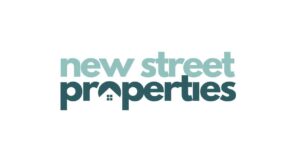Are Mortgage Rates Set to Decrease?

Mortgage rates have been a topic of concern for many homeowners and prospective buyers in recent times. The current situation in the UK housing market indicates that mortgage rates have reached their highest level in over a decade, with the average rate on a two-year fixed deal now exceeding 6%.
Furthermore, the average rate for a five-year fixed deal stands at a staggering 6.27%. The increase in mortgage rates can be attributed to the Bank of England’s base interest rate, which has been raised consecutively for the past 13 times and currently sits at 5%.
In this article, we will explore the current landscape of mortgage rates and delve into whether we can expect a decrease in the near future.
What Is The Current Situation?
Following a decline in mortgage rates from their peak in autumn last year, recent months have witnessed a significant jump in rates. This surge can be attributed to the persistently high inflation levels.
Consequently, there is growing anticipation that the Bank of England will continue to raise interest rates, leading lenders to preemptively increase mortgage rates.
However, amidst these rising concerns, experts predict that interest rates will gradually revert to pre-pandemic levels, ultimately resulting in a decrease in mortgage rates.
Should I Get a Fixed Rate Mortgage Deal?
When considering a mortgage, one common dilemma is choosing between a fixed rate and a variable rate deal. A fixed rate mortgage offers stability, as the interest rate remains unchanged for a set period. This predictability allows homeowners to plan their finances accordingly.
However, during periods of low-interest rates, opting for a fixed rate mortgage might result in missing out on potential savings if interest rates were to decrease further.
On the other hand, a variable rate mortgage is subject to fluctuations as interest rates change. This option carries some uncertainty but can be beneficial if interest rates decrease. Ultimately, the choice between the two depends on an individual’s risk appetite and financial circumstances.
What Options Are There for First-Time Buyers With A Small Deposit?
For first-time buyers with a small deposit, the options available may be limited. Typically, lenders require a higher deposit to secure more favourable mortgage deals, as it reduces their perceived risk.
If you only have a 5% to 10% deposit saved, you may face higher interest rates and fewer offers to choose from. Additionally, it’s worth noting that 100% mortgage offers, which allow buyers to secure a mortgage without a deposit, are very limited and come with higher interest rates due to the increased risk for lenders.
However, it’s important to note that there are government schemes in place, such as the Help to Buy Equity loan, that can assist first-time buyers in securing a mortgage with a smaller deposit. Exploring these options and seeking professional advice can help buyers overcome the challenges posed by limited deposit savings.
The current state of mortgage rates in the UK reflects a period of high rates compared to the past decade. While inflation and consecutive increases in the Bank of England’s base interest rate have contributed to this rise, experts predict a gradual return to pre-pandemic interest levels, leading to a potential decrease in mortgage rates.
When considering mortgage options, individuals should carefully evaluate the pros and cons of fixed rate and variable rate deals.
However, exploring government schemes and seeking professional advice can provide potential solutions to overcome these challenges. As the housing market evolves, it is advisable to stay informed and regularly review mortgage rates to make the most suitable decisions for your financial circumstances.









